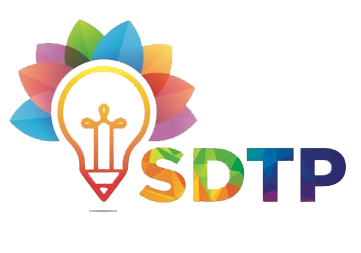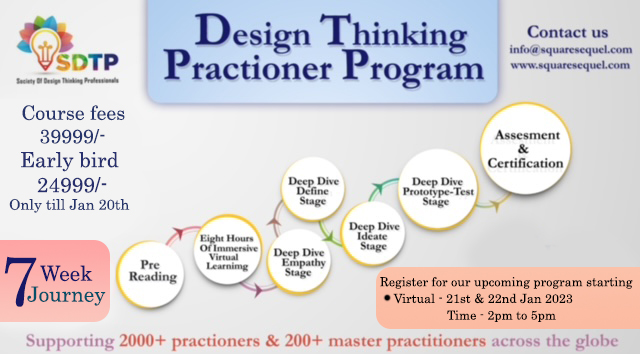Like any other fresher, Vaibhav was ecstatic to take a leap into the professional world. He was all geared up for the shift, however, he was having interviews and new-job jitters. He talked to his uncle, Sivaranjan, about the anxiety and the ambivalent emotions. His uncle, Sivaranjan is a well-versed professional in one of the major corporations. He embarked on the job to walk Vaibhav through the lengths and breadths of professionalism.
Professionalism is a powerful element. It enables you to perform your duties to the best of your ability. It assists you in impressing and inspiring others. It also gives you a strong sense of accomplishment and self-worth. Furthermore, professionalism is something that anyone can strive for from the start of their career. Regardless of your role or profession, professionalism entails consistently achieving high standards, both visibly and “behind the scenes.”
Vaibhav, we have successfully laid the groundwork, and talked about the visible part of professionalism – the myths and realities of professionalism, the power of effective communication skills, and the importance of nonverbal communication – body language, power dressing, effective verbal communication, introduction to written communication and email etiquette. Now, it’s time to sow the seeds, and talk about “behind the scenes,” said Sivaranjan.
Before we take the plunge, let me tell you a tale, said Sivaranjan.
There was an elderly carpenter who was about to be retired. He told his employer about his retirement plan to say goodbye to the business and have free rein with his family. He said he would surely miss his paycheck, however, he needed a retirement. His employer was deplorable to bid adieu to his favorite worker. So, he asked him to build one last house as a personal favor.
The carpenter’s mind, body, and soul were already in retirement mode and one last project seemed like wheels within wheels to him. He could not wrap his head around the work, resorted to shoddy workmanship, and used low-grade material. His objective was to finish the work and go back to the original plan for his retirement.
When he finished the project and handed the keys to the house to his employer with a sigh of relief, his boss inspected the house and with a smile on his face handed the keys back to him, saying, “This is your parting gift, congratulations, it is your house.”
The carpenter was awestruck for a moment (thinking how differently he could have built the house, if only he knew he was going to own it.)
What do you learn from this story, Vaibhav? – asked Sivaranjan.
I think if he thought of it as the last project of his career, he could have given his heart and soul to it and remembered it as his biggest achievement for the rest of his days, Vaibhav said thoughtfully.
Indeed! If he loved, valued, and well-thought of his work, he would have given his 100%, last project or not, chuckled Sivaranjan.
It all boils down to the values we put on the top shelves of our lives. Our values reflect what means the most to us and what guides us out and out our entire lives. Our values are our personal guiding principles or life goals that guide our behavior in all aspects of our lives, including our life at home, at work, and in society. The significance of values stems from their purpose, which is to guide our behaviors, feelings, attitudes, and beliefs, explained Sivaranjan.
Uncle, what are the dots that connect behaviors, feelings, attitudes, and beliefs, asked Vaibhav.
Let’s deep dive into the matter at hand.
What Is The Origin Of Values?

What we do and how we act constitute our behavior. This could include physical activities such as running and jumping, verbal behavior such as saying things we later regret, or complex behaviors such as cheating on a test or planning a party. Behaviors differ from thoughts and emotions in a way that they concern what we do in the world. Thoughts and emotions, on the other hand, exist within us and do not require us to act on them.
Behavior is an action performed by an individual that is a tag given by others based on their perspective. The irony is that people get tags based on others’ ideologies. If the action is good in their eyes, the behavior is good, and if the action is bad, the behavior is bad. We have to be cognitive enough to understand where these behaviors come from. As an example, when we watch a cricket match, our behavior swings like a pendulum depending on how the team we support is playing. The game is most likely taking place hundreds of miles away, however, our behavior dangles on the game of the team we are supporting.
Feelings influence our behavior. If our feelings are strong, it shows in our actions; if our feelings are weak, it shows in insignificant actions or behavior. We obviously act differently toward those we like than those we dislike. Understanding the feelings that underpin and produce human behavior is the key to understanding it.
Attitudes are defined by psychologists as a learned tendency to evaluate things in a particular way. This includes assessments of people, issues, objects, or events. Such assessments are frequently positive or negative, but they can also be ambiguous at times. “Attitudes are caught, not taught,” as the saying goes. Three factors shape one’s attitude: society, education, and the environment in which one grows up.
Consider this: a believer entering a Hindu temple, a Sikh temple/ Gurudwara, or a Mosque will remove his or her footwear, wash his or her feet and hands, and then enter to pray, whereas it is perfectly acceptable to walk into a church with your shoes on. We are entering into a praying area in all four places, however, there is a slight difference in attitude to the same activity.
Beliefs are a fascinating topic that has been studied since time immemorial. Belief is the state of mind in which a person believes something to be true, with or without empirical evidence to prove that something is true with factual certainty. Another way to define belief is as a mental representation of a positive attitude toward the likelihood of something being true. We believe something to be true because we have faith in it. For example, I believe that lowering wages improve cost efficiency. Beliefs are formed through previous experience and other forms of learning.
In the professional world, it is vital for a professional to understand, and be aware of the beliefs of the people and respect them as there is nothing right or wrong about them. While we are not always aware of our own values, understanding them can help us make better decisions that will benefit us and others in the long run. This could imply taking a job with more opportunities for variety, change, and spontaneity, as opposed to one with more opportunities for security and tenure.
At their core, the order of values depends on the priorities. For example, someone may prioritize freedom over comfort, and equality over comfort. This importance hierarchy corresponds to the belief that, if necessary, one thing (equality) should be sacrificed for another (comfort), and then another (comfort) for another (freedom).
Behavior, feelings, attitude, and beliefs congregate to bring out our values. I hope you understand the essence of these four elements, Sivaranjan asked Vaibhav.
Yes, uncle, I can clearly draw a bead on the values and their value in our lives – both professional and personal, uttered Vaibhav.
Fair enough, now shall we proceed to understand the upper hand of values in the workplace? – asked Sivaranjan.
Sure uncle, let’s unveil the treasure of values, jumped Vaibhav.
Prominence Of Values In The Workplace

Recognizing, understanding, and adhering to your values is one of the most important efforts any human being can make, and it is equally important in the workplace. Values are significant because they shape our beliefs, attitudes, feelings, and behavior. The consequences of consistently compromising your values in your decision-making are undeniable.
Here is a list of reasons why values are so vital in the workplace:
Values help you get what you want
The purpose of your personal values spirals around every aspect of your life. They can be pivotal in the workplace, informing job searches and career decisions. To determine your personal work values, order them on the scale of most important to least important. These could include accomplishment, recognition, help, independence, working conditions, and justice. You will be able to identify companies or industries with methods and goals most conducive to your personal values if you have a clear sense of the values that deem fit in your work efforts.
Values keep you focused, motivated, and engaged
When you work for a company whose product, process, or mission you disagree with, your productivity suffers. Living according to your values keeps you motivated and happy in all aspects of your life, including your job. Working towards a goal you don’t strongly believe in can leave you lagging in your efforts, losing motivation much faster than if you were to truly want to strive for the goal in question.
Values help you make decisions
What steps would you take if you have reached your maximum position for growth and advancement in your company? Are you supposed to stay and sacrifice your desire for more stimulation in exchange for job security, or do you value stimulation more than security and begin looking for a new job where you can grow?
Understanding and identifying your values is critical because when you do, you can not only communicate them when changes are needed, but you can also draw on them when you decide to change paths if they are not as per your expectations.
Values are an infallible way of gaining self-respect
If you value punctuality, let your coworkers know. Speak up if you believe your superiors are underappreciating or ignoring you. People will respect you if you respect yourself by sticking to what you believe is morally sound and in line with your values. Expressing your values enhances not only your relationships and happiness with others, but also gives your self-esteem the front seat.
Vaibhav, you have to understand the fact that others’ values vary from your own is the core to better understanding others. Values can help us predict each other’s choices, which can help us avoid misunderstandings, frustration, and distrust. People prioritize different sets of values that guide their behavior while their choices may differ from yours, but there is nothing wrong with them.
This is how our values influence us through our words and actions. They assist us in growing and developing to create the future we desire for ourselves and others. Clarity about our values can help us build a solid life foundation, giving us a foundation for decision-making and preparing us for happiness in both life and work, explained Sivaranjan.
This has certainly given me a perspective to deep dive into my own values, and I will work on exploring and making them the crux of my life. I am swayed about my long-term success plan and I embark on the mission to understand and appreciate my values from here on out, said Vaibhav with a spark in his eyes.
https://www.mindtools.com/av44li2/professionalism
https://www.mindtools.com/ayjltrz/understanding-workplace-values
https://sprigghr.com/blog/hr-professionals/the-importance-of-values-in-the-workplace/
https://www.elegantthemes.com/blog/wp-content/uploads/2020/11/value-based-marketing-blog.png
Written By: Jimmy Jain
Edited By: Afreen Fatima
Society of Design Thinking Professionals









